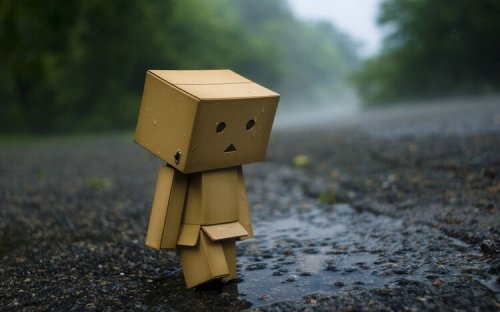What Happens in Your Brain When You Are Depressed?

The brain is a magnificent organ that we’re still learning a lot of things about. For example, scientists are still discovering how certain emotions affect the brain.
Depression is one of them.
The truth is that there will be times that you are depressed or sad over the course of your life, as well as personal events that will test you.
Sadness is a basic human emotion, just like happiness, fear, or anger. Experiencing it means that your brain is acting differently and producing a series of effects at the same time that you’re not always conscious of. You may feel hungrier or more tired, try to search for solitude, or cry more.
You might be interested in learning the purpose of all of these changes in your body. This way, you can better know how you can face sadness the healthy way in order to get out of this situation as soon as possible. As a result, you can prevent a more serious illness, like clinical depression.
In this article, we’ll take a look at just that.
What Happens to Your Brain When You Are Depressed

Believe it or not, sadness is one of the emotions that has the biggest impact on your metabolism.
But what does that mean?
It means that there are many changes that your body and mind undergo from external problems, whether they are losses, disappointments, or choices.
Next, we’ll look at every one of these aspects that happens in your brain.
See also:
Can You Overcome Sadness with Natural Foods?
The Importance of Empathy
The brain has various defense mechanisms for handling sadness. After all, this is one of the most recognizable emotion in humans. When you see someone, you immediately know if they’re suffering from it or not. In other words, you will develop empathy for them.
This dimension allows you to support people that are sad. Everyone knows how helpful it is to have friends or family members who support us.
It is interesting to note that empathy tends to be more developed in women.
Your Brain Needs More Energy: Glucose

When you’re suffering from depression, your brain is incredibly active. It may seem strange, but scientific studies say that a depressed brain activates many parts of the brain.
Why?
It’s easy to understand. When you’re depressed, you remember, think, suffer and reason in search of solutions and new alternatives. It’s also harder to sleep because you’re thinking about so many different things. Your hippocampus is therefore active, which is the front part of the brain (the prefrontal cortex). In addition, the anterior cingulate cortex and the temporal lobes are more active.
You also have to keep in mind that your brain uses almost 20% of your energy.
However, when you’re depressed, it needs even more, with glucose being the main need. This causes you to feel more hungry and to seek sweet things, for example. Sometimes, this is the reason why many gain weight when they’re sad or depressed.
The Essential Need to Cry

Periods of sadness mean the accumulation of a large amount of tension in your body.
Tears have a biological function of hydrating the eyes on their own. However, you should differentiate them from emotional or crying tears, which are also essential for your health.
The brain accumulates too much tension and needs to release this anxiety. Thus, tears are the best way to relieve this. Afterwards, endorphins are released that will make you feel better and more relaxed. We therefore recommend that you don’t suppress crying when you need to.
Avoid Harmful Situations and Live and Learn

A sad brain generates less serotonin, a neurotransmitter associated with motivation. If you’re unable to move on from a period of sadness by making new decisions and accepting what happened, this deficit in serotonin could cause you to suffer from illnesses like depression.
However, to overcome this, you must be strong and find new resources to move on in these times of self-reflection.
Also read:
What are the Benefits of Acupuncture?
Depression encourages you to live and learn. Life is never easy, but overcoming sadness and depression helps you to become stronger and lead a more fulfilling life.
This text is provided for informational purposes only and does not replace consultation with a professional. If in doubt, consult your specialist.








